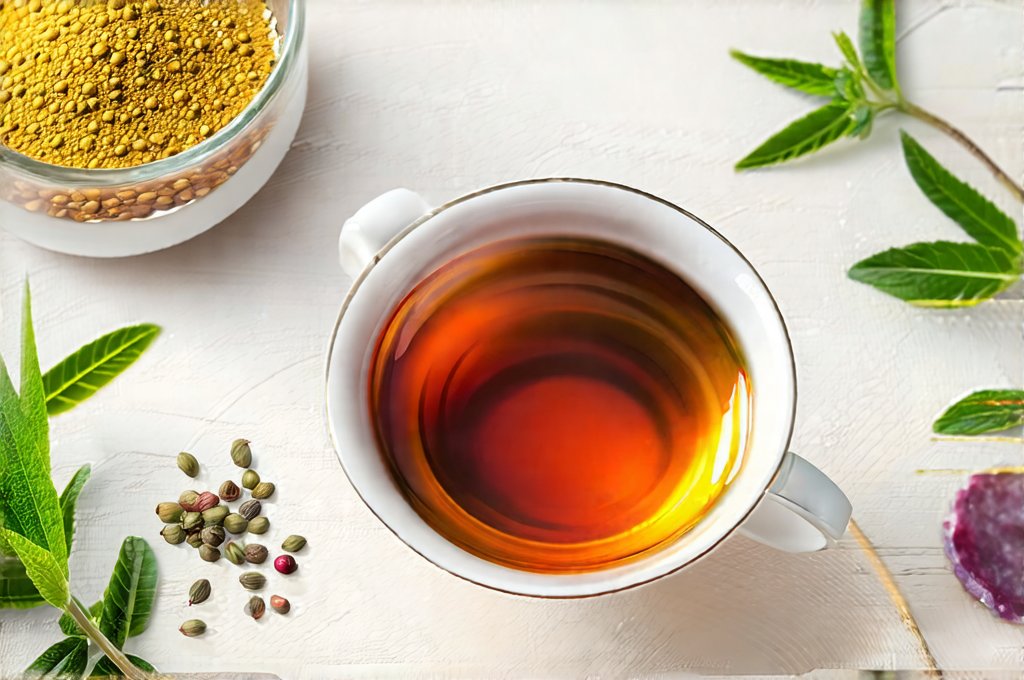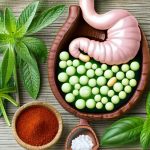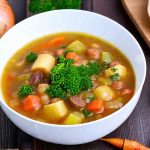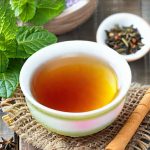Gas pressure, that uncomfortable bloating and distension we often experience after meals, can significantly impact our daily lives. It’s a common digestive issue stemming from various factors, including diet, eating habits, stress levels, and underlying gut health. While over-the-counter remedies offer quick relief, many individuals are seeking natural alternatives to manage this discomfort. Hydration plays a crucial role in overall digestion and can directly influence gas production. Often, simply increasing water intake helps move things along the digestive tract, lessening build-up and associated pressure. However, certain teas go beyond basic hydration by incorporating ingredients known for their carminative (gas-relieving) and anti-inflammatory properties, offering a soothing and effective approach to natural relief.
This article explores the world of hydrating teas that can assist in relieving gas pressure naturally. We will delve into specific tea varieties, highlighting their benefits, preparation methods, and potential cautions. It’s important to remember that everyone’s digestive system is unique; what works wonderfully for one person may not have the same effect on another. This exploration aims to provide you with informed choices to find teas that best support your individual needs and contribute to a more comfortable digestive experience. We will focus on how these teas work, their specific components, and how they can integrate into a holistic approach to gut health, rather than providing quick-fix solutions.
Soothing Herbal Infusions for Gas Relief
Herbal teas are naturally caffeine-free, making them an excellent choice for any time of day, including before bed. Their gentle nature minimizes disruption while offering digestive support. Several herbs have long been recognized for their carminative properties – the ability to reduce gas and bloating. Peppermint tea is perhaps the most well-known remedy. Menthol, a key component in peppermint, helps relax the muscles of the gastrointestinal tract, allowing gas to pass more easily. This makes it particularly helpful for those experiencing cramping alongside bloating. However, individuals with GERD (gastroesophageal reflux disease) should exercise caution as peppermint can sometimes relax the lower esophageal sphincter, potentially exacerbating acid reflux.
Ginger tea is another powerhouse when it comes to digestive support. Gingerol, the active compound in ginger, aids digestion by accelerating gastric emptying – meaning food moves through the stomach faster, reducing fermentation and gas production. It also possesses anti-inflammatory properties that can soothe an irritated digestive system. The warming nature of ginger makes it particularly comforting during periods of bloating or discomfort. Chamomile tea, beloved for its calming effects, isn’t directly a carminative but helps reduce stress, which is often a significant contributor to digestive upset. A stressed digestive system tends to be less efficient and more prone to gas build-up.
Fennel tea, derived from the fennel bulb, has been used traditionally to alleviate bloating and indigestion. It contains anethole, which helps relax intestinal muscles and reduce spasms. Many cultures consume fennel seeds after meals specifically for this purpose. Combining these teas – perhaps a blend of peppermint, ginger, and chamomile – can create a synergistic effect, offering comprehensive digestive support. Always source high-quality herbal teas from reputable suppliers to ensure purity and potency. Understanding foods that cause gas is also vital for managing symptoms.
The Role of Green and White Tea Variants
While often associated with energy boosts due to their caffeine content, certain green and white tea variations can also contribute to reduced gas pressure when consumed mindfully. The key lies in choosing lower-caffeine options and pairing them strategically with other digestive aids. Green tea contains polyphenols, specifically catechins, which have demonstrated anti-inflammatory properties that may soothe the gut lining. However, for some individuals, caffeine itself can exacerbate digestive issues; therefore, moderation is crucial. White tea generally has less caffeine than green tea and offers a milder flavor.
Certain green tea blends incorporate ingredients like licorice root or ginger, further enhancing their digestive benefits. Licorice root possesses demulcent properties, coating and soothing the digestive tract, while ginger, as previously discussed, promotes efficient digestion. It’s important to note that excessive consumption of licorice root can lead to fluid retention and increased blood pressure, so moderation is essential. Look for blends specifically designed with digestive health in mind, rather than standard green tea varieties.
Consider brewing your green or white tea using slightly cooler water temperatures (around 175-185°F) as higher temperatures can sometimes contribute to bitterness and potentially irritate a sensitive digestive system. Furthermore, avoid adding dairy milk, which can be difficult for some people to digest, increasing gas production. Opting for plant-based alternatives like almond or oat milk may be a more comfortable choice. Supporting your gut with foods that naturally detox the gut can also improve digestion.
Peppermint & Ginger Fusion: A Recipe for Relief
This simple tea blend combines the potent carminative properties of peppermint with the digestive support of ginger, creating a powerful and soothing remedy for gas pressure.
Ingredients:
– 1 teaspoon dried peppermint leaves
– ½ teaspoon grated fresh ginger (or ¼ teaspoon ground ginger)
– 8 ounces hot water
Instructions:
1. Combine peppermint leaves and ginger in a tea infuser or directly into a mug.
2. Pour hot water over the herbs.
3. Steep for 5-7 minutes, allowing the flavors to fully infuse.
4. Remove infuser or strain before drinking. You can add a small amount of honey if desired, but avoid excessive sweetness.
This tea is best consumed after meals when gas pressure is anticipated or experienced. The combination provides both immediate relief through muscle relaxation (peppermint) and improved digestion (ginger). Experiment with the ginger quantity to find what suits your palate and digestive needs.
Hydration Beyond Tea: Supporting Gut Health
While teas are fantastic, they are just one piece of the puzzle. Maintaining adequate hydration throughout the day is fundamental to healthy digestion. Aim for at least eight glasses of water daily, increasing intake during periods of activity or hot weather. Water helps move food through the digestive tract, preventing constipation and reducing fermentation which leads to gas production.
Beyond water and tea, consider incorporating hydrating foods into your diet:
– Cucumbers
– Watermelon
– Celery
– Lettuce
– Broths & Soups
A balanced diet rich in fiber is also crucial for gut health, but it’s important to increase fiber intake gradually to avoid exacerbating gas. Probiotic-rich foods like yogurt (if tolerated), kefir, and fermented vegetables can help populate the gut with beneficial bacteria, improving digestion and reducing bloating. Regular exercise further supports digestive function by stimulating intestinal motility. Mindful breathing practices can also ease discomfort.
Identifying & Avoiding Trigger Foods
Ultimately, managing gas pressure often involves identifying and avoiding trigger foods that contribute to excessive gas production. Common culprits include:
– Legumes (beans, lentils) – soaking them overnight can help reduce their gassiness
– Cruciferous vegetables (broccoli, cauliflower, cabbage) – cooking them thoroughly may make them easier to digest
– Carbonated beverages – avoid these entirely if you’re prone to bloating
– Artificial sweeteners – some artificial sweeteners are poorly absorbed and fermented in the gut
– Dairy products – lactose intolerance is a common cause of gas
Keeping a food diary can be immensely helpful in pinpointing which foods trigger your symptoms. Pay attention to how your body reacts after eating different meals. Consider an elimination diet, under the guidance of a healthcare professional, to identify specific sensitivities or intolerances. Remember that dietary changes are often necessary for long-term relief and should be tailored to individual needs and tolerances. Foods that neutralize stomach acid(https://vitagastro.com/foods-that-neutralize-stomach-acid-naturally/) can also play a role in digestive comfort, as well as understanding herbal teas for food sensitivities.


















